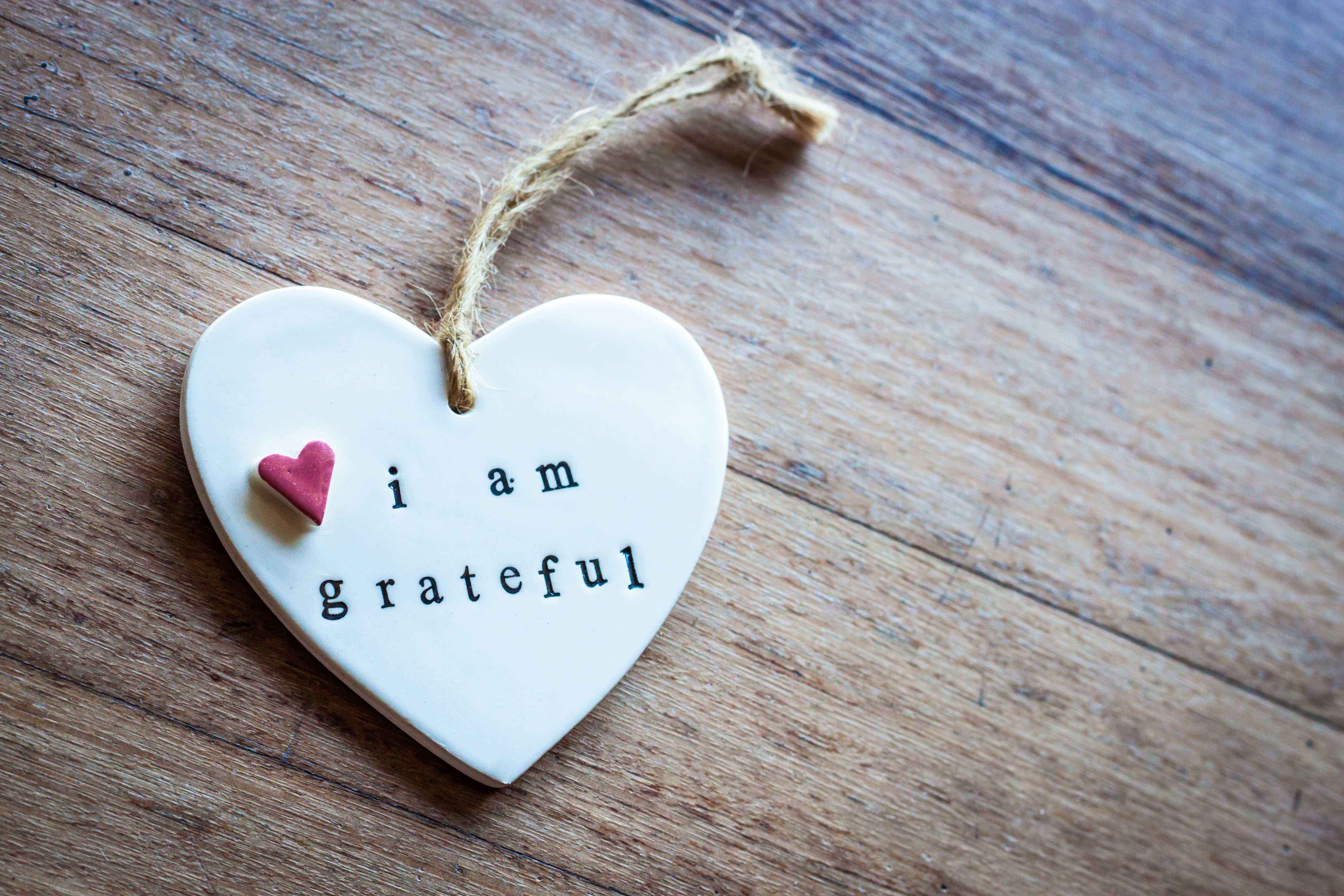 Photo from Pexels.
Photo from Pexels. Patience can wear thin, even when one is in a fairly good mood. Minor things such as traffic jams and no clean socks might transform into reasons for irrational frustration. A few months ago, I found myself yelling and cursing because I had forgotten to pack a dress I’d wanted to wear when traveling. After my rant was over, I felt drained. As I analyzed this feeling, it dawned on me I hadn’t written in my daily gratitude journal in quite some time.
Over time, I learned to counteract negative thoughts with positive thoughts, actions and affirmations. One of the actions I do is list what I’m grateful for. Sometimes, I focus on life-giving sustenance I often take for granted (clean water, access to healthful food); other times, I focus on my friendships, the people I call when I’m having a low moment, who lend me their hands to help me climb up from the space into which my negative thoughts placed me.
There is a noticeable improvement in my mood on the days I actively engage in a gratitude journaling practice. My physical and mental spaces are more organized; I have clarity and understand the work in front of me; I’m not nearly as bothered by life’s annoyances.
I wear a different dress.
Small stuff seems huge on the days I don’t write in my gratitude journal. A single negative thought may lead to multiple negative thoughts. This propels me nowhere but down. It is not a fun place to be — and it’s not productive.
Many of us observe gratitude in the Birkat ha-Mazon prayers on Shabbat. Many of us practice gratitude on Thanksgiving. These weekly and annual “thanks” are positive, but what if we are grateful for something each day? Find something to be grateful for — even on days that are not our finest. When we give daily thanks, even for the simplest thing, we build a habit that encourages a positive life.
My gratitude practice changed my life as other virtues became nearly impossible to ignore. After I began to use the power of gratitude on a daily basis, I became grateful for it all: the good, the bad, the ugly.
Gratitude can be an antidote to many negative experiences. We’re human, and we have moments in our lives that are difficult, yet they may seem less difficult with a dose of gratitude and the adoption of the mantra “This, too, shall pass.” Gratitude is the gateway to other virtues.
My gratitude practice changed my life as other virtues became nearly impossible to ignore. After I began to use the power of gratitude on a daily basis, I became grateful for it all: the good, the bad, the ugly. All three are there to teach us lessons, and lessons often turn into blessings.
“Practice” is the key word here. Life ebbs and flows; some days, I’m on top of listing what I’m grateful for while on other days, I’m scattered (or worse, I’m airing my grievances). I try to use those scattered moments to bring myself back to my center. And what’s at the center is a simple “thank you.”
My life unfolds more ideally when I choose to think more positive thoughts, acknowledging my blessings on a daily basis. When negative thoughts creep in from a lack of daily gratitude … well, I yell about an inanimate piece of fabric.
The more reasons we find to give thanks, the more blessings we’ll have; the more blessings we have, the more beautiful our lives can be. This Thanksgiving, I invite you to show up to the table giving thanks for the abundant harvest of your life. I invite you to take away a gratitude practice that becomes an everyday feast.
Heather Colleen Reinhardt is an author, speaker, producer, entrepreneur and yogi. Her debut book, “Go Love Yourself,” was released earlier this year. You can follow her on Instagram @heathereinhardt.






















 More news and opinions than at a Shabbat dinner, right in your inbox.
More news and opinions than at a Shabbat dinner, right in your inbox.